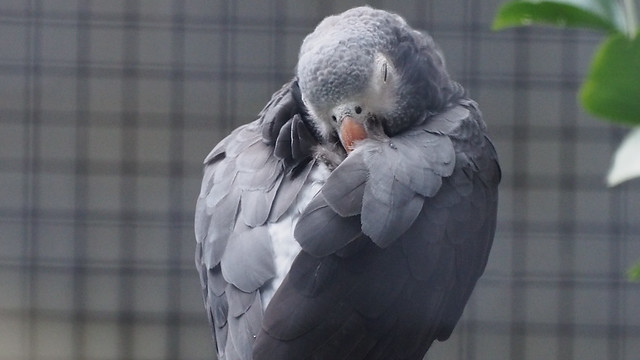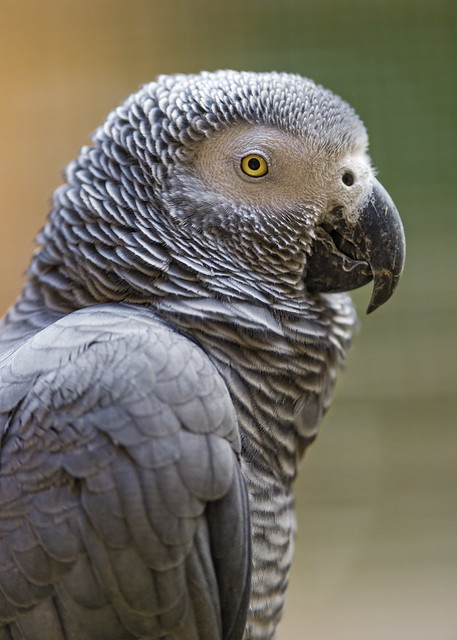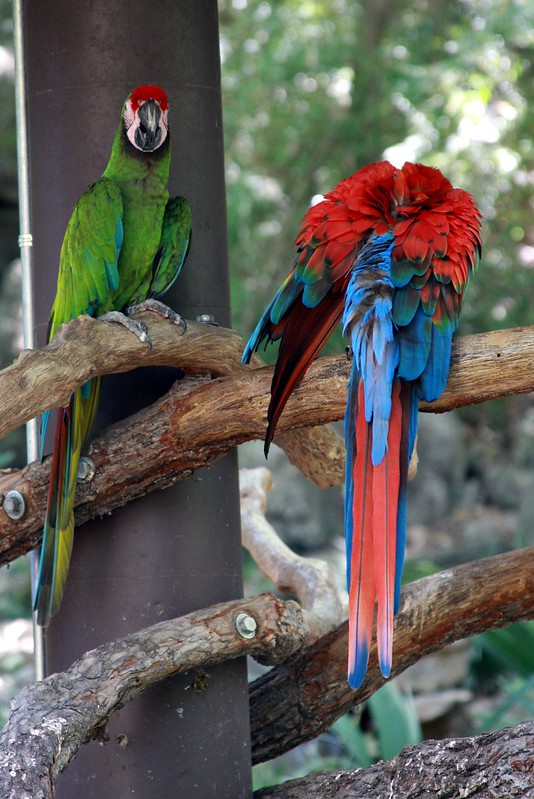 |
| Photo by thomasswilliams |
One of the most crucial things for a pet owner to realize is the amount of uninterrupted sleep a parrot needs.
While most of the waking day is spent playing, grooming, foraging and finding interesting things to get into, the Parrots although not realized by most, do spend times asleep.
Two basic patterns of sleep are noted by these three elements:
1.) Patterns of the brain waves during different phases of sleep
2.) Eye movement
3.) Muscle activity
A.) Electroencephalography (EEG) - a test that measures and records the electrical activity of your brain.
B.) Electromyography (EMG) - a test that measures the electrical activity of muscles.
C.) Electrooculography ((EOG) - a test that measures eye movements.
These three testing procedures have been conducted on several species of parrots and parakeets, including the Half-moon Conure and the Budgerigars are known commonly as Budgie.
As in Humans, Birds have been found to have two major forms of sleep.
1) SWS - Shown in a test as slow high voltage brain waves. This stage of sleep appears to be the most important because of the restorative functions of the mind and body.
2) PS - (Paradoxical Sleep) in test show low voltage brain waves similar to those of being awake.
These low voltages are often associated with movement of the eyes (REM).
In humans, dreaming happens during the Paradoxical Sleep stage. It has been suggested that PS may be associated with brain development and learning.
Out of all the parrots studied PS stage was always preceded by SWS. It has also been noted that the Parrots spent a shorter time in PS stage than most mammals or any other avian species. It should be noted, the studies could be ruled inconclusive since the test was conducted under lighted conditions. Although even under lighted conditions it was found that the Half-Moon Conure spent 57% of a 24hour period in a sleep state (SWS or PS).Budgies were 38% of the same time in a sleep state.
An interesting sleep stage was also recognized in the parrots which are referenced as Unihemispheric slow-wave sleep (USWS). Which is the ability to sleep with one half of the brain while the other half remains alert? This is often associated with migrating birds that travel long distances is believed to go into this form of sleep. This form of sleep is also a form of protection while one part of the brain sleeps the other part is alert for predator detection.
In the wild, Parrots normally sleep in groups known as flocks. The flocks are typically found sleeping in close proximity of the feeding areas.
Parrots are much like people when it comes to sleep. Without the proper amount of sleep, parrots can be irritable. Several behavior issues can be associated with the lack of sleep which could include biting, plucking, screeching, throwing food and being generally destructive.
How much sleep does a Parrot need?
A general recommendation is at least 10 to 12 hours of darkness for rest.
When preparing for spaces for your new Parrot keep in mind of the need for quite a dark atmosphere during sleeping hours.
Keeping in mind of your Parrots need for sleep will help you and your Parrot have a more fulfilling companionship.
|



